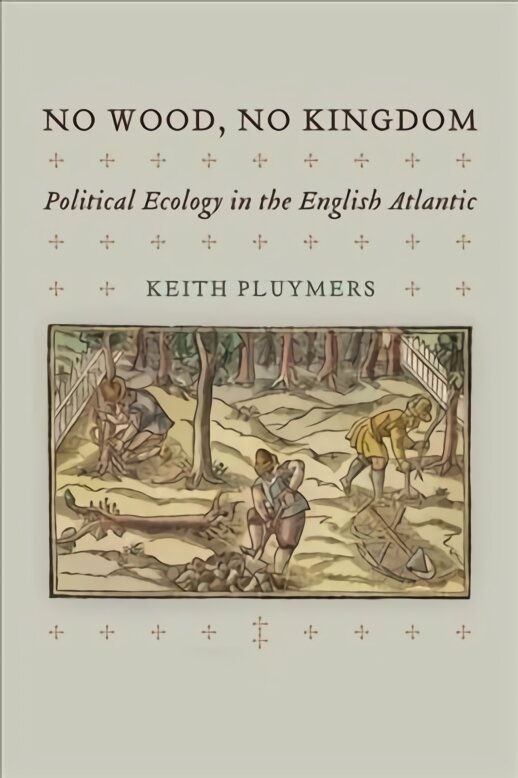"Attempts to define, measure, and manage woods in England and in potential colonies took place within the context of deep uncertainties and limited access to information that in practice might mean older initial impressions defined thinking in one place even as newer understandings, grounded in different experiences, shaped distinctive political ecologies in another location. Contemporaries often acted as though their actions occurred in isolation while nonetheless seeking commercial and material connections around the Atlantic basin. No Wood, No Kingdom is thus organized to reflect these chronologically overlapping and geographically and conceptually diverse characteristics. Pluymers begins in England with sixteenth-century anxieties about wood scarcityand efforts to reform and manage domestic wood supplies before turning to late sixteenth- and early seventeenth-century promotional plans for Ireland and Virginia. England, Ireland, and Virginia operate as a triptych, illustrating the efforts to solve domestic scarcity in this early period. These places were connected in some contemporary political ecologies but have distinct histories, occupying at times overlapping chronologies. Each tells its own story, but, taken together, they reveal the multiple perspectives that shaped and frustrated efforts to forge a coherent imperial political ecology that might link them together. From there, he turns to seventeenth-century Bermuda and Barbados, places that developed important transatlantic connections based on trees but for different uses: as drugs, dyes, or materials for luxury goods. Even if they were never imagined as solutions to English scarcity, these islands nonetheless reflected, if only partially and incompletely, contemporary English political ecologies and wood-management techniques. Again, in Bermuda and Barbados, early modern English political ecologies were refracted through local experience and environment. Concerns about wood scarcity and efforts at preservation in Bermuda and Barbados demonstrate that many of the same issues that obsessed Arthur Standish quickly reemerged across the Atlantic. He concludes with an examination of the political ecology of wood in England and its colonies in the 1660s to show how early modern English ideas about scarcity and natural resource preservation had changed and had remained constant over the past century in the light of experiences both domestic and abroad"--
In early modern England, wood scarcity was a widespread concern. Royal officials, artisans, and common people expressed their fears in laws, petitions, and pamphlets, in which they debated the severity of the problem, speculated on its origins, and proposed solutions to it. No Wood, No Kingdom explores these conflicting attempts to understand the problem of scarcity and demonstrates how these ideas shaped land use, forestry, and the economic vision of England's earliest colonies.Popular accounts have often suggested that deforestation served as a "push" for English colonial expansion. Keith Pluymers shows that wood scarcity in England, rather than a problem of absolute supply and demand, resulted from social conflict over the right to define and regulate resources, difficulties obtaining accurate information, and competing visions for trade, forestry, and the English landscape. Domestic scarcity claims did encourage schemes to develop wood-dependent enterprises in the colonies, but in practice colonies competed with domestic enterprises rather than supplanting them. Moreover, close studies of colonial governments and the actions of individual landholders in Ireland, Virginia, Bermuda, and Barbados demonstrate that colonists experimented with different, often competing approaches to colonial woods and trees, including efforts to manage them as long-term resources, albeit ones that nonetheless brought significant transformations to the land.No Wood, No Kingdom explores the efforts to knot together woods around the Atlantic basin as resources for an English empire and the deep underlying conflicts and confusion that largely frustrated those plans. It speaks to historians of early modern Europe, early America, and the Atlantic World but also offers key insights on early modern resource politics, forest management, and political ecology of interest to readers in the environmental humanities and social sciences as well as those interested in colonialism or economic history.
No Wood, No Kingdom explores the conflicting attempts to understand the problem of wood scarcity in early modern England and demonstrates how these ideas shaped land use, forestry, and the economic vision of England's earliest colonies.
